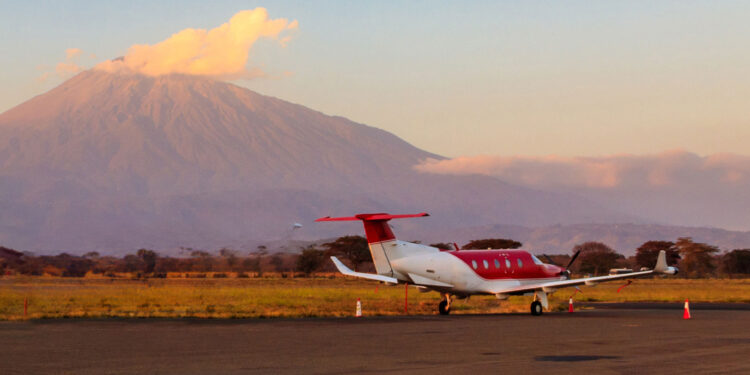Understanding African Overflight and Landing Permits: Part 1 – Top 6 Challenging Destinations

This is a post by author Stanley Joseph. Stanley is general manager for Kilimanjaro Aviation Logistics Centre (KALC), a subsidiary of Universal Weather and Aviation, Inc. which is headquartered in Mwanza, Tanzania. Stanley is an expert on permits for the African region and can be contacted at stanleyjoseph@universalaviation.aero.
This business aviation blog post is part of a series on challenging African overflight and landing permits.
The African continent is experiencing a steady increase in business aviation. Business aircraft operators, however, still face challenges in terms of permit requests. It’s best to initiate the overflight and landing permit process as early as possible. Some locations are more difficult than others, from the permit perspective, so it’s important to pre-confirm documentation, credit, and lead time requirements with your 3rd-party provider.
The following is an overview of what you need to know about overflight and landing permits when operating to Africa:
1. Top destinations in Africa
There are 56 countries in Africa, but general aviation movements are mostly concentrated to certain areas. Top destinations include the Cape Verde Islands, South Africa, Mozambique, Morocco, Algeria, Angola, and Nigeria. International movements are predominantly from the U.S. and EU, but we’re seeing more and more operations from the Middle East and within Africa.
2. Permit delays may be a factor for Djibouti
Only one person within Djibouti Civil Aviation Authority (CAA) has authorization to issue landing and overflight clearances, and this person works Monday-Friday. Due to this constraint significant potential exists for permit processing delays.
3. Paying fees for Gabon can be complex
When operating to Gabon, be aware that permit fees are high and must be paid directly to the CAA’s account – via wire transfer – prior to permits being processed. Another potential glitch at this location is that your permit may not be issued until a few hours prior to the requested time of operation. In some cases actual permit confirmation may not be received until after you’ve landed in Gabon.
4. Processing issues can be anticipated in Morocco
Morocco requires that all permit requests be sent via aeronautical fixed telecommunication network (AFTN). This is not always convenient for operators. Morocco does not accept permit requests via e-mail or fax. Be aware that there’s a language barrier to consider as Air Traffic Control is not required to communicate with you in English. Also, flight plans must be filed day of flight.
5. Permit lead times are long for Cameroon
Cameroon permit lead time is seven business days, and all permit requests must be approved by the Minister of Defense. Cameroon tends to view permit requests as a potential security issue and, therefore, requires additional time to process them. Revising permits for Cameroon can take time if you’re changing route of flight.
6. Kenya CAA closes on weekends
Kenya CAA processes all landing/overflight permit requests online. Note that CAA is closed on weekends, with no back-up briefing office available to process permits. Only one person is assigned to process permits – including permits for medical emergencies.
7. DRC and Guinea-Bissau require extended permit lead times
A short-notice permit request for the Democratic Republic of the Congo (DRC) is considered to be five business days. Guinea-Bissau, however, mandates seven business days for short-notice requests. Although short-notice requests may be possible in Africa, it’s at CAA’s discretion. Advance planning and preparation is essential when setting up trips to DRC or Guinea-Bissau.
Conclusion
Due to extended permit lead time requirements at many African locations, operating flexibility may be somewhat limited for short-notice ops or last-minute schedule revisions.
Questions?
If you have any questions about this article or would like assistance in obtaining permits for your next trip to Africa, contact me at stanleyjoseph@universalaviation.aero.
Stay tunes for Part 2, which covers lead times, documentations, and cautions when operating to Africa.




